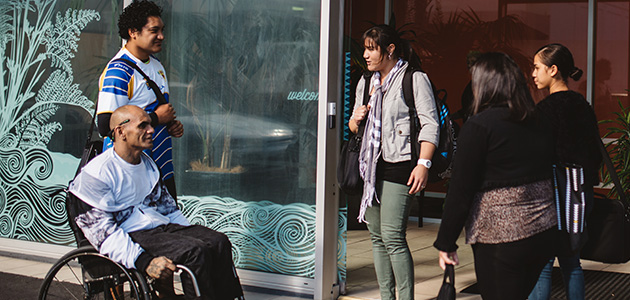28 May 2014
Beyond Disability
by Fiona Sherwin
Laidlaw has many opportunities to speak into various areas of church life in Aotearoa New Zealand. One conversation we have been involved with over the past three years is in the area of disability. We have had the opportunity to partner with other organisations to seek to address issues pertaining to what it might look like if New Zealand and particularly churches were fully inclusive of those who have disabilities.
Just last week we were able to partner with Elevate Christian Disability Trust to hold a conference specifically aimed at church leaders who want to engage in the conversation. The fact is, if you took a snapshot at churches, you will find that most will have someone with a disability. What you will also find is that often the disability is hidden, or perhaps, do I dare to say, not welcome because it is just too hard.
The purpose of the conference was to highlight the unique role of the church and to help pastors to lead their congregations to be places of welcome and belonging for those with impairments and parents who have children with impairments.
It was heartening to see the different people engaged with the day. Everyone was seated into conversational groups and that was great. All had different experiences and as such, unique insights and advice to encourage one another.

Immanuel Koks gave one of the keynote addresses. He presented an understanding of “Messy Theology”. What would it look like if we were willing to let go of what we consider “order” to embrace the other, and not just hold them at arm’s length? Would we cope if it got a little disordered in a service? What would we do? Our conversation tables engaged around this. What was wonderful is that we had various experiences of disability in our conversation groups. Those living with impairments could share and advise. Assumptions were challenged; honest questions and answers were given. This, I think is what community is.
Are we willing to be communities that can love the other? Are we willing to show this in our practices, in our planning of services, in our buildings? This is a conversation that is not always easy, but is important. What is even more important is that we as the church have a voice that can bring hope where for some, hope has been lost. Are you willing to answer that call and participate?
The brilliant thing is that even if you are not sure about how to welcome people with disabilities, Elevate is there to help. They are wanting to engage in conversation, they have the understanding. Why don’t you check them out? http://elevatecdt.org.nz
